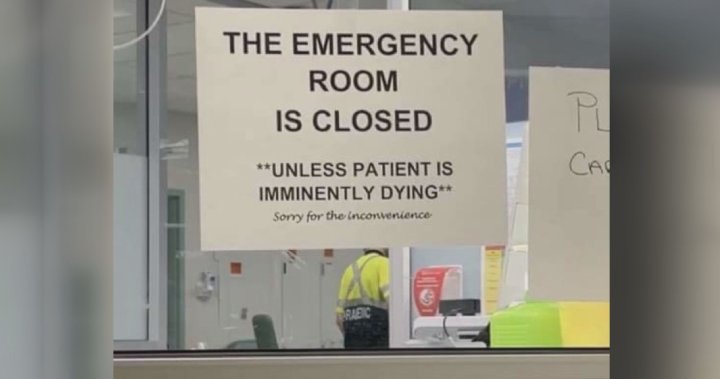Residents in several communities in British Columbia, including Williams Lake, are facing frequent temporary closures of local emergency departments, causing frustration and concern among residents and local officials. The Cariboo Memorial Hospital in Williams Lake has experienced 10 closures in July alone, most of which occurred on weekends, impacting tens of thousands of residents in the region. Other communities in the Interior Health region, such as Merritt, Lilooet, Oliver, and Creston, have also reported frequent closures, with a total of 62 temporary closures since January 1st, including 28 in July. Mayors from affected communities have expressed frustration with the situation, with some threatening to send bills to the province for the interruptions.
The closure of emergency departments in B.C. is attributed to physician and nursing staffing shortages and availability issues, exacerbated by vacations, health-related absences, and pandemic-related challenges. Interior Health has hired additional staff to address the shortages, with plans to hire more nurses and physicians in the fall. Health Minister Adrian Dix acknowledges the staffing challenges faced by hospitals, particularly in rural communities, and highlights initiatives such as hiring additional nurses, changing payment models for doctors, and expanding incentives for healthcare workers to live and work in rural areas. Despite these efforts, emergency department closures continue to impact communities and add stress to paramedics, resulting in longer response and transportation times for patients.
In response to the ongoing closures, local officials and residents in affected communities are calling for action to address the issue and prevent future interruptions. Cariboo-Chilcotin MLA Lorne Doerkson is organizing a community rally to protest the closures and demonstrate the widespread concern within the community. Interior Health has been urged to conduct an internal audit on the diversion issue, and there are calls for increased communication with the community and independent reviews to identify solutions to the problem. Efforts to recruit and retain healthcare workers, including expanding nursing programs and housing initiatives, have been cited as successful strategies in communities such as Clearwater, which has avoided diversions for an extended period.
The impact of emergency department closures extends beyond immediate healthcare concerns, affecting ambulance paramedics and patient care. Ambulance Paramedics of BC president Jason Jackson highlights the stress on paramedics, longer response times, and concerns about potential negative impacts on patient care, particularly during critical health emergencies. While additional ambulance units have been deployed to communities facing closures, there is a significant number of vacant paramedic positions across the province, raising concerns about long-term staffing issues. Both local officials and healthcare professionals are calling for urgent action to address the challenges faced by communities dealing with emergency department closures and to ensure the well-being of residents is prioritized.
The closure of emergency departments in British Columbia has created a significant strain on healthcare services in affected communities, prompting calls for immediate action to address staffing shortages and prevent future interruptions. Frustration and concern among residents and local officials have intensified as emergency department closures continue to impact access to critical healthcare services, leading to longer response times and potential risks to patient care. Efforts to recruit and retain healthcare workers, increase communication with the community, and conduct internal audits are among the proposed solutions to address the ongoing crisis. Urgent action is needed to ensure the well-being of residents in affected communities is safeguarded and access to essential healthcare services is maintained.













